Recorded on a lovely afternoon in early June 2025, up on Cascade mountain, a couple thousand feet above my house. In the recording, I promised a photo. Here it is:

The recording might be a bit quiet, and I apologize about that. If it’s annoying to you, just send me a note so that I’ll be motivated to find a better solution next time.
Text of poems
Sonnet 4 Unthrifty loveliness, why dost thou spend Upon thyself thy beauty's legacy? Nature's bequest gives nothing but doth lend, And being frank she lends to those are free. Then, beauteous niggard, why dost thou abuse The bounteous largess given thee to give? Profitless usurer, why dost thou use So great a sum of sums, yet canst not live? For having traffic with thyself alone, Thou of thyself thy sweet self dost deceive. Then how, when nature calls thee to be gone, What acceptable audit canst thou leave? Thy unused beauty must be tomb'd with thee, Which, used, lives th' executor to be. Sonnet 5 Those hours, that with gentle work did frame The lovely gaze where every eye doth dwell, Will play the tyrants to the very same And that unfair which fairly doth excel: For never-resting time leads summer on To hideous winter and confounds him there; Sap cheque'd with frost and lusty leaves quite gone, Beauty o'ersnow'd and bareness every where: Then, were not summer's distillation left, A liquid prisoner pent in walls of glass, Beauty's effect with beauty were bereft, Nor it nor no remembrance what it was: But flowers distill'd though they with winter meet, Leese but their show; their substance still lives sweet. Sonnet 6 Then let not winter's ragged hand deface In thee thy summer, ere thou be distill'd: Make sweet some vial; treasure thou some place With beauty's treasure, ere it be self-kill'd. That use is not forbidden usury, Which happies those that pay the willing loan; That's for thyself to breed another thee, Or ten times happier, be it ten for one; Ten times thyself were happier than thou art, If ten of thine ten times refigured thee: Then what could death do, if thou shouldst depart, Leaving thee living in posterity? Be not self-will'd, for thou art much too fair To be death's conquest and make worms thine heir.
My voice was quite deep because I was dealing with the beginning of a cold that is still lingering.
I decided to do three sonnets at once because, frankly, the procreation sonnets get a little tiresome after a while. Every one has something interesting in it, but my whole goal is to give you a hook to learn to enjoy/appreciate poetry like this.
If you’re actually paying attention to what you’re reading, and if you pause to think and reread, you will of course see that Shakespeare is making an economic argument in sonnet 6. Basically, if one kid brings happiness, then ten kids will bring 10x happiness.1 The alternative without children, says Shakespeare is that your only heirs will be worms. Ouch.
Some unrelated photos I took at my recording spot
I grabbed some quick pictures with my phone of the wildflowers that were growing on the trail that day.
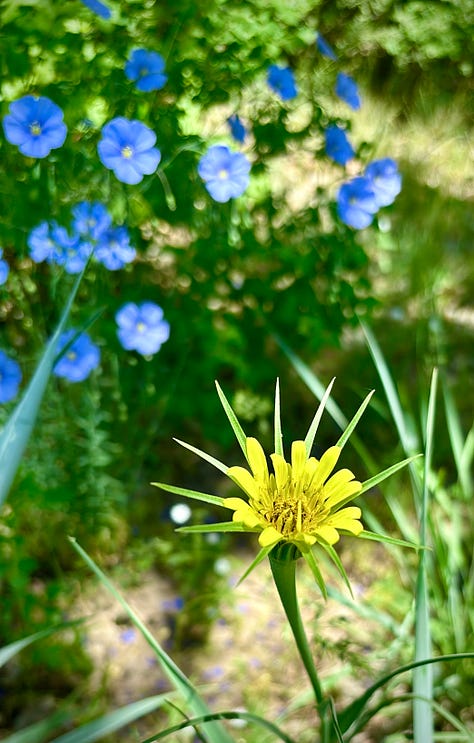
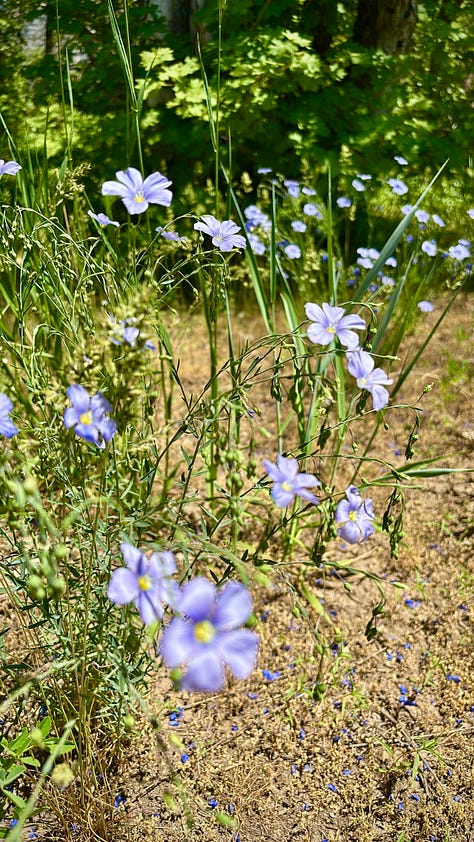
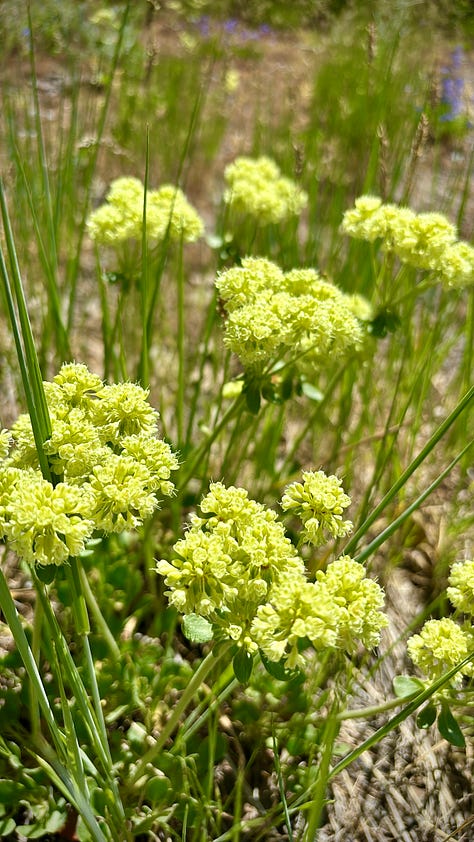
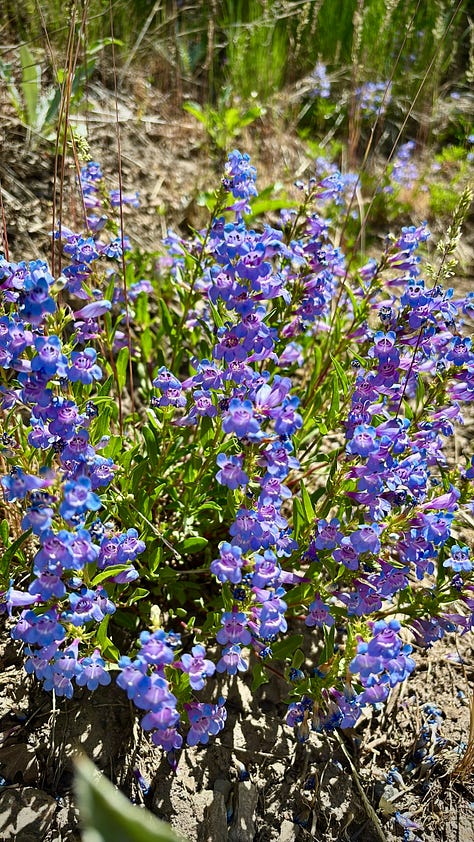
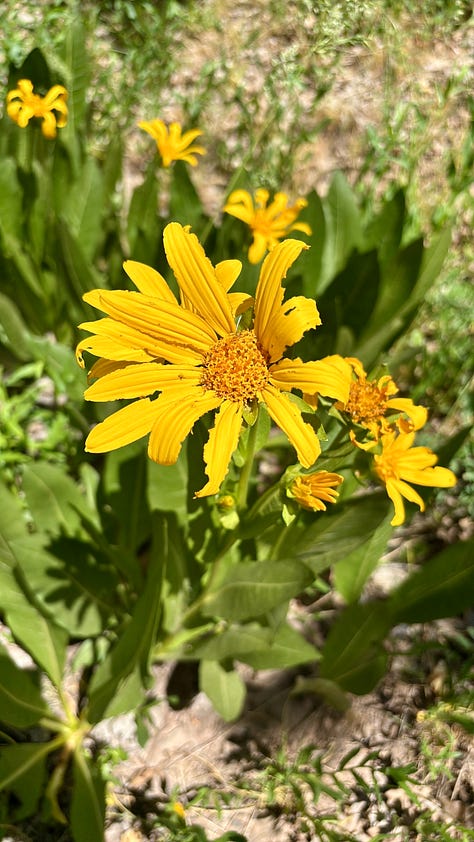
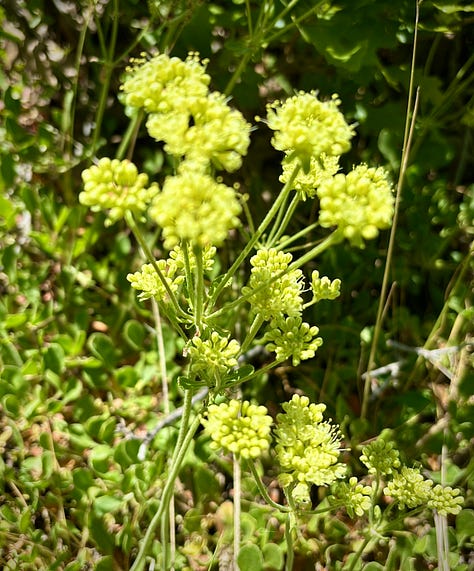
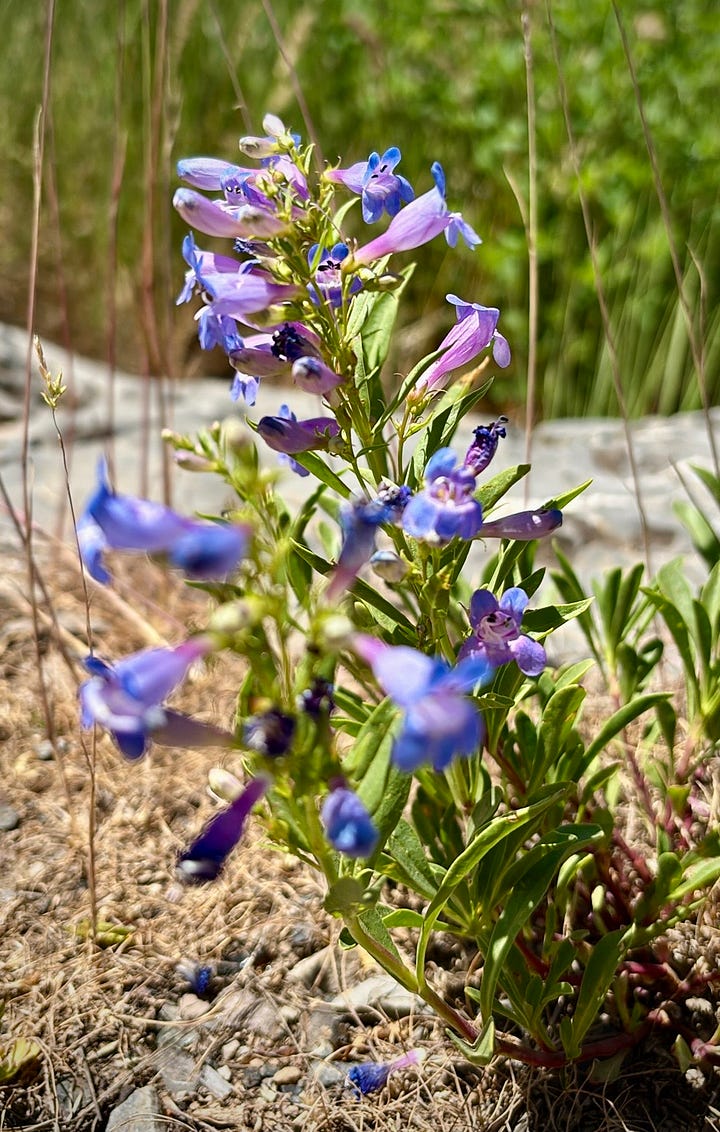
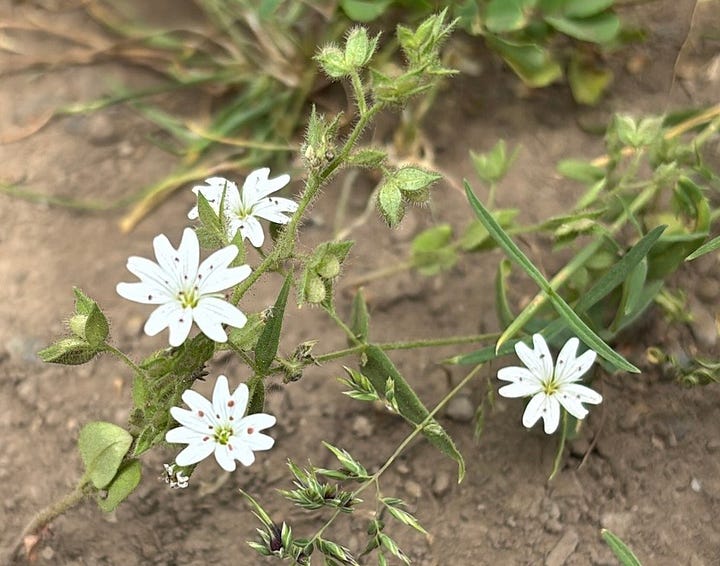
Beardtongues, mule’s ears, buckwheat, salsify, starwort, and flax. What a wonderful world, don’t you think?
All is well,
Jeff
And, historically, I want to say, “how would you know, Mr. Shakespeare?” He left his kids with his wife in Stratford while he lived, basically his entire adult working life, in London. He visited occasionally, but he was hardly a present father. Does ten children increase your joy an order of magnitude beyond what you’d enjoy with just one child? Speaking of someone who has more than one but fewer than ten children: maybe. I don’t think it’s a linear function. Sometimes the joy from having a large family with many (now adult) children is far above what you might expect if it were linear. And sometimes, the anguish is also far beyond, too. The extremes are more extreme. But, one of the benefits of having lots of kids is that at no point are all of the children causing you pain.










Share this post